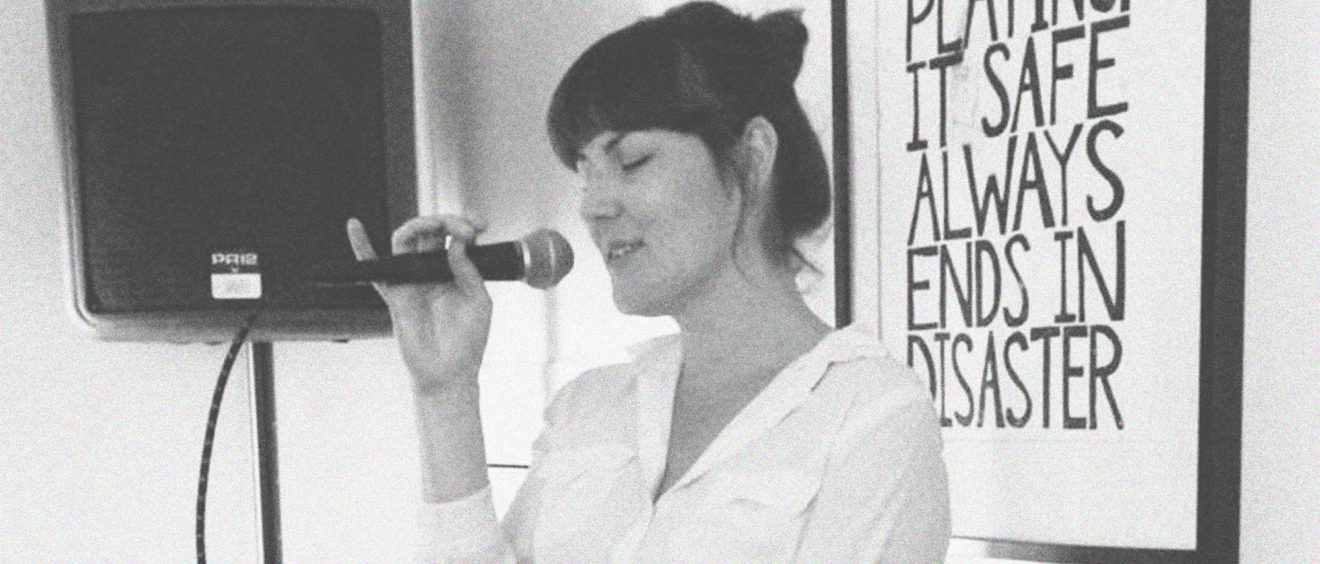
Four Ways That Singing Makes Us Better Communicators
Throughout the years I’ve been teaching people to sing, students have noticed some pretty amazing side effects. In addition to increased confidence, control and comfort when singing, students regularly report the same in situations such as:
- Giving speeches
- Talking to their boss
- Speaking up in a meeting
- Dealing with a difficult colleague
- Conducting negotiations
- Making new friends
- Standing up for themselves
- Communicating with family and friends
Now you’re probably thinking: That’s pretty awesome. How does all of that come from learning to sing?
Well, at a first glance, the fundamentals of singing seem pretty basic. And singing, at its root, is actually a pretty simple equation: Open your mouth + send the air out = hit the notes.
It’s tidy. It’s linear. It’s short. Easy peasy!
Sort of.
What that sweet little mathematical statement doesn’t account for is that there are many reasons why it might be a challenge for a person to open their mouth. There are just as many reasons why it might be a challenge for a person to move their breath in or out. And there are just as many reasons why it might be a challenge for a person to feel comfortable with the idea of a ‘note’ or what it means to ‘hit’ one. Add in pesky things such as words, meaning, volume changes and music, and suddenly we’ve gone from basic addition, to more complicated and layered arithmetic.
Oh.
The fact that learning to sing is so layered makes it a super efficient way to learn about communicating because when a person steps into the room to practice their singing, they are simultaneously working on several things at once. Let’s take a look at four of them…
1) The Physical Voice and Body.
Whether singing in the car, giving a speech, or talking to a friend in a noisy room, creating sound is a physical, and dare I say, athletic, experience. Learning about posture, isolating the right muscle groups, and understanding how to use the body as an instrument to create sound will help to ensure that the voice will:
- Be available and clear.
- Be solid and consistent.
- Be fluid and have stamina.
Additionally, and perhaps almost more importantly, learning how to use the breath not only enhances the quality of one’s voice, but also enables them to remain calm, poised and present under all kinds of circumstances.
2) The Emotions.
Our culture likes to take itself pretty seriously. Publicly, we enjoy our quiet stoicism and our professionalism. Secretly though, we all feel things. And we feel things very deeply. And we think we’re the only one in the whole wide world who feels those things. Even though we’re not. But we’re scared to tell other people. Because we think they won’t like us anymore. Even though they will.
Songs are full of emotions. Songs are intended to give us the feels. All of the feels. Singing songs is a great way for a person to practice being vulnerable and authentic – two big, scary words! Singing gives people a safe entry point to vulnerability and authenticity by giving them permission to:
- Feel their feelings.
- Sit with their feelings, understand them, make friends with them and at the very least, not shy away from them.
- Share their feelings with others and realize that other people feel the same things.
- Realize that even when feeling feelings, we are all still very likeable. In fact, we are MORE likeable because we’re being honest. Weird, I know.
3) The Language.
Whether our own songs, or songs that were written by someone else, through singing we learn how to listen to, connect with, and speak about the underlying meaning of what is being said. This teaches us things like how to:
- Choose the most effective words and intonation.
- Understand and utilize appropriate physical gestures and eye contact.
- Understand social norms and queues.
4) The Ability to Show Up.
Singing brings up a lot of stuff for most people. Through singing we learn that we are carrying around a lot of old and sometimes unnecessary beliefs about ourselves, the world, other people, etc. Before a person can hit one single note, they have to be willing step up to the task. If a person is ready to dive into singing once, or on an ongoing basis, they will notice:
- An increased ability to cultivate compassion and empathy for themselves and others.
- A deepening awareness of and ability to clear out mental and emotional blocks.
- An enhanced willingness and ability to remain present, open and curious in different circumstances.
- A decrease in stress and anxiety levels.
Singing is a multifaceted tool for helping people become better overall communicators. If approached in the right setting and with the right people, it is a highly effective way to quickly break down barriers and build confidence, communication skills and stage presence, while building trust and community at the same time.
Oh, and it’s super fun!

